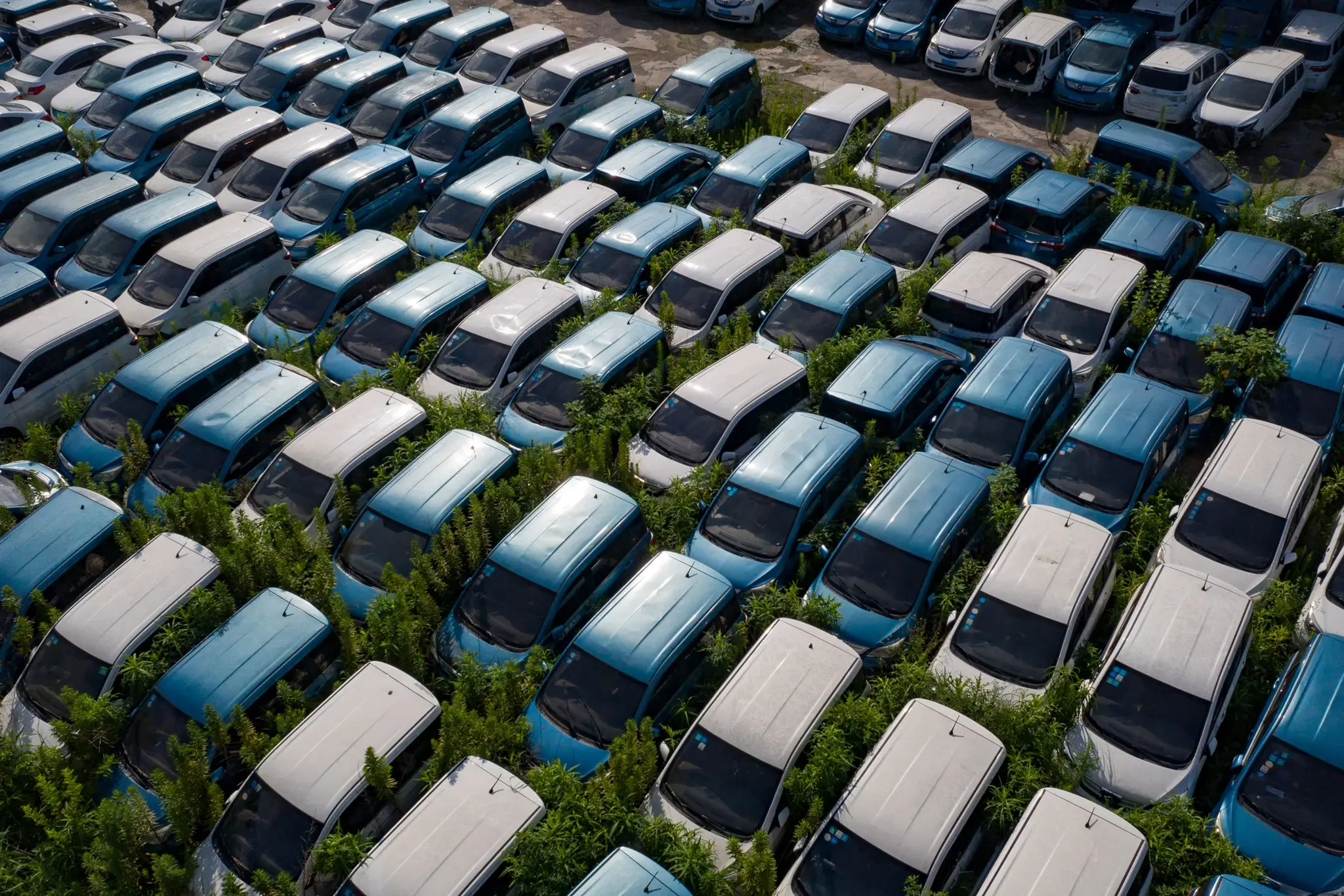A subsidy-fueled boom helped build China into an electric-car giant but left weed-infested lots across the nation brimming with unwanted battery-powered vehicles.
TLDR: A bunch of ride sharing companies sprouted up in the 2010s built around no frills EVs they leased to employees and then most of them consolidated or went out of business a few years later, leaving parking lots of used vehicles. Expect them to be auctioned off to either be recycled or hopefully sold on to lower wage nations.
They’ve been abandoned not because obsolete but because the unlimited unrestricted capitalism ordered to build a service that nobody wanted to use because “we must grow and be the first to hit the market whatever it takes”
Subsidies - Unrestricted Capitalism
Choose one.
China is not a country that gives subsidies but a corporation that invests in branches it wants to grow
Capitalism dictates maximizing profit by any means, including taking free money from the government.
A government giving out targeted free money, is not an “unrestricted capitalism” government.
China, is an aggressively capitalist society, colliding with a strongly communist facade. Or a disaster in slow motion.
China is an instance of State Capitalism, where the government owns the means of production, and uses it for profit-generation. The only reason that anyone in the West actually believes it’s at all Communist is because we’re so indoctrinated by Red Scare propaganda that most people can’t tell the difference between “workers own” and “the government owns”, since the only kind of private ownership we recognize is ownership by oligarchs/corporations.
Subsidies are by definition not a restriction on bad behavior but an incentive. There is no reason a company can’t ignore a subsidy if it doesn’t want to.
Subsidies skew the market toward specific sectors, technologies, or actors. A company that do not benefit from subsidies is at a competitive disadvantage vs a company that do get subsidies.
A totally free market wouldn’t have any subsidies. But markets aren’t totally free in practice.
Subsidies are typically a good thing when it benefits cleaner tech or improving energy efficiency. It’s the fossil fuel subsidies that do the most harm.
I would argue that being horriblely disadvantaged by not getting free money is not in fact a restriction on the market.
That’s technically correct. It’s not a restriction. But it’s not a neutral for the market either.
Of course it’s not neutral, but we’re talking about wether or not it is comparable with unrestricted capitalism.
Reminder that capitalism doesn’t mean free market.
That’s part of it, even if that’s not the only part.
Central characteristics of capitalism include capital accumulation, competitive markets, price systems, private property, property rights recognition, voluntary exchange, and wage labor.
Sure, in the same way that a central characteristic of Communism is being a Stateless society, even though that part never seems to happen either (thanks, Lenin). “True Capitalism has never been tried before!”
I don’t understand why they wouldn’t introduce a trade scheme for petrol car owners: swap your petrol pollution machine for a free EV!
Also, why not sell these cars to be retrofitted with better batteries? Wouldn’t it be cheaper that building a whole new car? How is there no industry around this?
Becuse that requires the government own them, which requires that they finish working their way though bankruptcy court. Some already have, and the rest should follow sooner or later.
Why would the government have to own them? Plus, it’s China. The government can persuade pretty much any national company to do their bidding. Sometimes they even persuade foreign companies to do their bidding *cough* Google Apple *cough*
Because it’s kind of hard to eminent domain the subject of an ongoing legal battle?
Really? The “communist” government that builds highways around the homes of people who don’t want to move, disappears business owners who don’t fall in line with the party mandate, and forces private companies to spy in their interest will find it “kind of hard” to nationalize resources of a private company?
I’d like to remind you that China isn’t Europe or the US.
You will note that none of thouse things might involve repossessing things party members might own a stake in the same way that they would a failed company.






